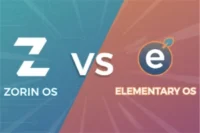Windows vs Linux: Simple and Complete Guide
Published: 18 Nov 2025
Did you know that Windows is used by millions of people worldwide for personal and office computers, while Linux is mostly used by programmers, developers, and tech enthusiasts? Understanding the differences between Windows and Linux is important because both operating systems have very different features and uses.
In this article, we will explain these differences in simple words so you can easily grasp how each system works.
Differences between Windows and Linux
Windows and Linux are both operating systems, but they serve very different purposes. Knowing the differences between them helps you understand how each system works.
Here is a list of key comparison windows vs linux below.
- Access
- Scope
- Purpose
- Security
- Examples
- Cost
- Connectivity
- Content Control
- Communication
- Speed & Performance
Let me guide you through all the key differences in detail one by one.
1. Access
Access means who can use the system.
Windows
Windows is widely used and easy for everyone to install. You need to buy a license, but it works on almost all personal and office computers. People with basic knowledge can start using it quickly.
Linux
Linux is mostly free and open-source. Anyone can download and install it, but it may need some technical knowledge. It is popular among programmers, developers, and tech enthusiasts.
2. Scope
Scope refers to how and where the system can be used.
Windows
Windows is used worldwide on personal computers, offices, schools, and businesses. Most software, apps, and games are made for Windows. It is the most common operating system for everyday use.
Linux
Linux is mostly used on servers, development machines, and specialized computers. It is very popular for running websites and programming. Some people also use it on personal computers for advanced work.
3. Purpose
Purpose means why the operating system is used.
Windows
Windows is used for general computing, gaming, office work, and multimedia. It is simple and user-friendly for beginners. People rely on it for everyday tasks and entertainment.
Linux
Linux is used for programming, servers, security, and software development. It is flexible and secure, making it ideal for tech-related work. Developers and companies prefer it for reliability.
4. Security
Security means how safe the system is from viruses or hackers.
Windows
Windows can be vulnerable to viruses and malware. Users need antivirus software and updates to stay safe. Hackers often target Windows because of its large user base.
Linux
Linux is very secure and less targeted by hackers. Most distributions have built-in security features and regular updates. It is widely used for servers because of its safety.
5. Examples
Examples help us see how the systems are used.
Windows
Windows versions include Windows 10, Windows 11, and Windows 7. People use it for gaming, office work, school, and multimedia. Most computers sold worldwide run Windows.
Linux
Linux examples include Ubuntu, Fedora, and Debian. Developers use Linux for programming, servers, and advanced computing. Many websites and supercomputers run Linux.
6. Cost
Cost means how much it takes to set up and use the system.
Windows
Windows usually costs money. You need to buy a license to use it legally. Some versions for home or business may be more expensive.
Linux
Linux is mostly free to download and use. Some organizations may pay for support or enterprise versions. Overall, it is cheaper than Windows for most users.
7. Connectivity
Connectivity means how the system connects with other devices and networks.
Windows
Windows connects easily with printers, software, and networks. It is compatible with most hardware and peripherals. Users can share files and connect devices without issues.
Linux
Linux also connects with networks and devices, but some hardware may need special drivers. It is strong in server and network connections. It is reliable for internal and external networks.
8. Content Control
Content control means who can manage files, apps, and system settings.
Windows
Windows allows users to install and manage programs easily. Admin rights are needed for major changes. Users can control files, settings, and software efficiently.
Linux
Linux gives full control to administrators and users. You can modify almost everything in the system. It allows advanced customization for tech-savvy users.
9. Communication
Communication means how the system allows people to share data or messages.
Windows
Windows allows communication through email, chat, and network sharing. Users can connect with friends, family, or coworkers. It supports both personal and professional communication.
Linux
Linux allows secure communication in servers and networks. Teams can share files, collaborate, and manage projects. It is widely used for professional and development work.
10. Speed & Performance
Speed & Performance means how fast and efficient the system is.
Windows
Windows may slow down over time with heavy software and updates. Performance depends on hardware and system maintenance. Regular updates can affect speed and responsiveness.
Linux
Linux is fast and stable, even on older computers. It is lightweight and performs well for programming, servers, and development tasks. It rarely slows down under normal usage.
📊 Windows vs Linux: Quick Comparison Table
Here is a quick comparison table of windows and linux.
| Feature | Windows | Linux |
| Access / User Base | Widely used, easy to install, for everyone. | Mostly free/open-source, popular among programmers/developers. |
| Scope | Most common OS for personal computers, offices, and everyday use. | Heavily used on servers, development machines, and specialized computers. |
| Purpose | General computing, gaming, office work, multimedia, user-friendly for beginners. | Programming, servers, security, software development, flexible and secure. |
| Security | Vulnerable to viruses/malware, often targeted, needs antivirus. | Very secure, less targeted, built-in security features. |
| Examples | Windows 10, Windows 11, Windows 7. | Ubuntu, Fedora, Debian. |
| Cost | Usually requires buying a license (costs money). | Mostly free to download and use. |
| Connectivity | Connects easily with most hardware and peripherals. | Strong in server/network connections; some hardware may need special drivers. |
| Content Control | Easy user/app management; admin rights needed for major changes. | Gives full control and advanced customization to administrators/users. |
| Speed & Performance | May slow down over time with updates/heavy software. | Fast and stable, even on older computers; lightweight. |
| Gaming | Better (most games designed for it). | Limited availability; typically not preferred for gaming. |
Conclusion
So guys, it’s time to finish up! In this article, we have covered the differences between Windows and Linux in detail. I recommend using Windows for everyday tasks, gaming, and office work, and Linux for programming, servers, and secure computing. Start applying this knowledge today and see which system suits your needs best.
FAQs about Windows and Linux
Here are some of the most important FAQs related to Windows and Linux.
Windows is user-friendly and widely used for personal and office computers. Linux is open-source and mostly used by programmers and servers. Both systems have different purposes and audiences.
Yes, most Linux versions are free to download and use. Some special enterprise versions may cost money. Users can also get community support and tutorials online.
Linux is generally more secure and less targeted by hackers. Windows needs antivirus software to stay safe. Security depends on updates and user habits on both systems.
Some Windows programs can run on Linux using compatibility tools like Wine. However, not all software works perfectly. Users may need alternative apps for full functionality.
Windows is better for gaming because most games are designed for it. Linux supports some games but has limited availability. Gamers usually prefer Windows for performance and compatibility.
Yes, you can install both in a dual-boot setup. This lets you choose which system to use at startup. Many developers and tech users do this to get the best of both worlds.

- Be Respectful
- Stay Relevant
- Stay Positive
- True Feedback
- Encourage Discussion
- Avoid Spamming
- No Fake News
- Don't Copy-Paste
- No Personal Attacks

- Be Respectful
- Stay Relevant
- Stay Positive
- True Feedback
- Encourage Discussion
- Avoid Spamming
- No Fake News
- Don't Copy-Paste
- No Personal Attacks





